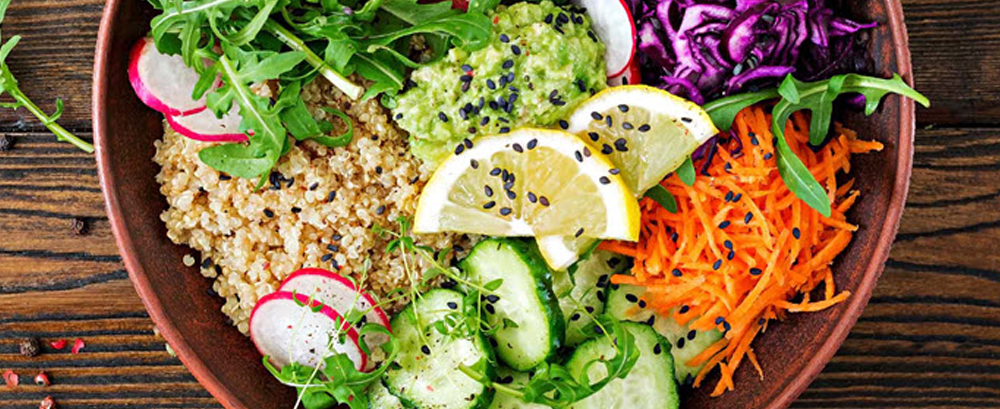
The foods we eat may be the most impactful part of our daily routine. When we find foods that are easy to prepare and tasty, we tend to stick with them. Over time, however, our eating habits may impact our physical and mental health. Those easy and tasty foods we favor every day may pack a lot of sugar or lack essential vitamins and minerals.
The best adjustments to your diet are the kind you can maintain every day. Consider the following tweaks to your daily routine:
Coffee
The morning cup of brew, that most habitual of beverages, is a good place to start adjusting your diet. According to the Harvard School of Public Health, the coffee itself isn’t the problem. What needs adjusting are the additives we put in our coffee. Cream and sugar are just the beginning for some coffee lovers. Sweeteners like caramel and chocolate can turn a cup of coffee into a liquid candy bar—a leading cause of cavities and tooth decay.
Pack your lunch
A side benefit of remote work is having the option to make your own lunch. Employees returning to the workplace should avoid the trap of eating heavy fast food. Packing lunch saves money and ensures that you know the ingredients of the food you’re eating. It will take some planning and shopping to have a week’s worth of salad and sandwiches available, but your body will thank you. One tip is to make extra when cooking dinner so you can enjoy the leftovers at work later in the week.
Snack healthy
Mid-afternoon cravings send many people to vending machines for a jolt of something salty or sweet. Consider packing your own treats such as trail mix, nuts, dried fruit, or dark chocolate. When vending machines are the only option, look for healthier snacks such as nuts and granola bars. Avoid preservative-filled cookies or muffins. According to Medical News Today, the healthiest snack may be a glass of water.
Give portions a hand
How much we eat is just as important as what we eat. San Francisco State University has a “handy” guide to determine portions of each food group.
- Protein (meat, fish, poultry): should not exceed the size of your palm.
- Vegetables and fruits: should fill your cupped hand.
- Carbs: should be limited to the size of your clenched fist.
- Fats: should be limited to the size of your thumb.
Quick adjustments
Looking for more easy adjustments to your eating habits? Try these:
- Drink a glass of water when you get out of bed each morning.
- Use smaller dishes—salad plates instead of dinner plates—to encourage smaller portions.
- Shop the perimeter of the grocery store where fresher, healthier food is kept.
- Eat one carb-free meal a day.
- Use olive oil instead of butter.
- Steam or grill instead of baking or frying.
- Season with herbs instead of salt.
- Eat at home more than you eat out.
- Don’t keep junk food in the house. Here are some healthy pantry essentials.
Small steps toward healthier eating can be the easiest to take and the most impactful in the long run. To be sustainable, changes to your eating habits must carry through your workday and your social life as well. Grant yourself some flexibility, but strive for consistency to meet your health goals. If you have any questions about starting a path toward better eating, consult your Kinwell clinician. Reach them through your MyChart app or call 833-411-5469 to schedule an appointment.


